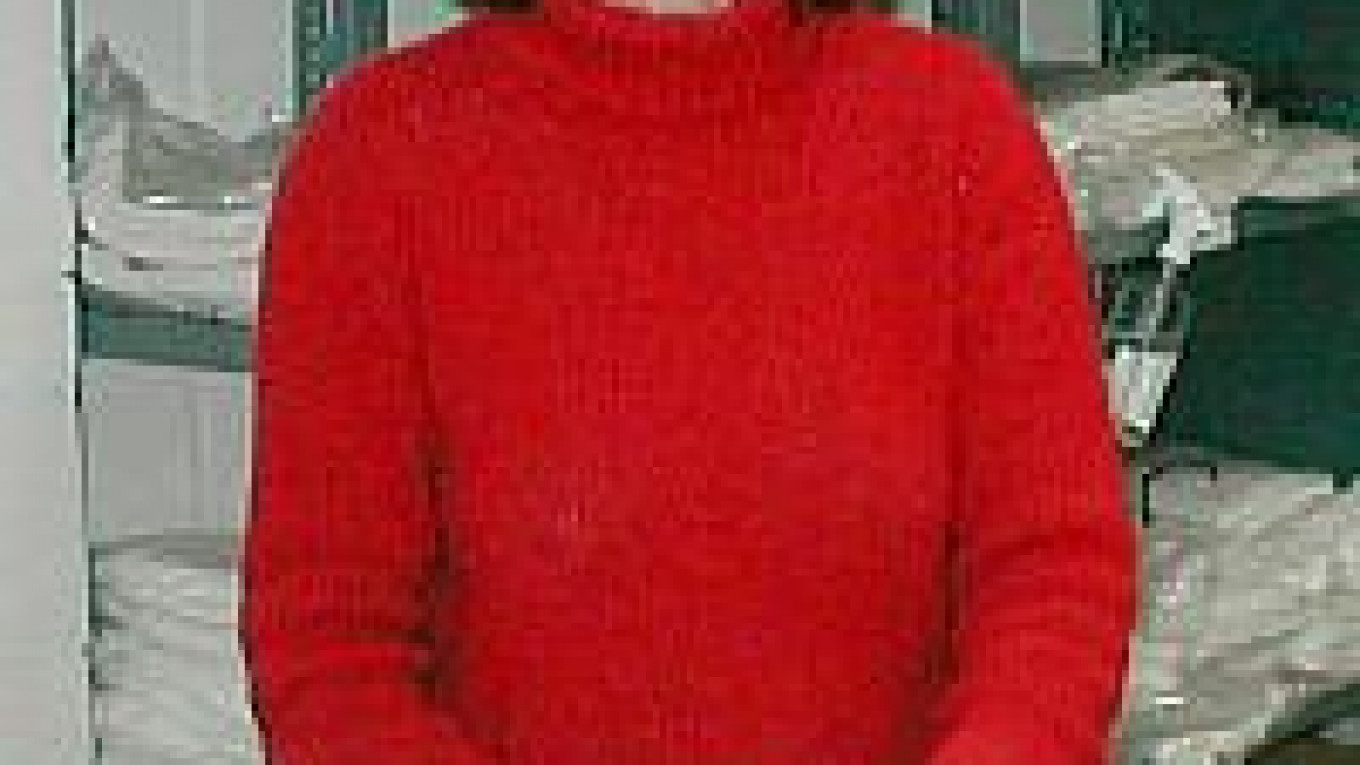It all began with four linen hand towels she bought as gifts from Russia over a decade ago. Then there were numerous journeys to linen factories on the Volga River. Today, Tollemache runs the thriving Volga Linen Company, a mail order catalogue and online business, out of her Suffolk home.
Tollemache, who occasionally breaks into Russian, said she made her first "pilgrimage" to the Soviet Union in 1970 to visit her Russian grandmother, who was born and lived in Tbilisi, Georgia.
Her second trip was in 1989, a difficult time for the country as Mikhail Gorbachev struggled to keep it going. Seeing local hospitals in dire straits, she convinced British drug manufacturers to donate medicine, which she later took to Russia.
"I saw that I couldn't go back empty-handed," Tollemache said, recalling that while some hospitals gratefully received the aid, while others were too proud to accept donations from outsiders.
Together with the then British Ambassador to Russia, she started a welfare and health charity, the Bearr Trust, but later left that work to concentrate on something she loved -- Russian linen.
Flax, a traditional Russian crop from which linen is spun, is big business in historical towns such as Ivanovo, Kostroma and Vologda dotted along the Volga River, and Tollemache spent two years, 1996 and 1997, taking trains and roving across the bumpy roads to linen-making factories employing thousands of people.
She said it was extremely difficult to get to company directors, who were used to dispatching thousands of meters of linen to their clients, when she wanted to buy just 1,000 meters. A couple of directors did open their doors to her because, Tollemache believes, they were intrigued by the idea of an English woman wanting to trade with them.
"I fought my way through," she said.
Knocking on shut doors and traveling alongside her was Alyona Doletskaya, who now edits the Russian edition of Vogue.
Tollemache says Doletskaya was "instrumental" in establishing the Russian side of business. The pair became friends through Doletskaya's father, a pediatrician, whom Tollemache had met during her earlier trips to Russia.
"Theresa is a very determined person, a committed, energetic and highly motivated businesswoman who loves Russia and Russian art," Doletskaya said.
Without any business experience or market research to back her up, Tollemache decided to test the waters by inviting her friends to a house sale of Russian linen products. They were enthusiastic.
"Gradually, I realized I had to go on with it," she said.
Tollemache borrowed ?30,000 (around $56,000 calculated today) from her friends, a sum she was able to return after two years, and began traveling to trade fairs; she printed a catalogue and launched a web site.
Her first big break came in 1999, when she was asked to furnish the five-star Astoria Hotel in St. Petersburg with her curtains, bedcovers and table linen. She has since worked with other top-end hotels in Russia, South Africa, and Spain.
The business is currently expanding into the United States, and her affluent clientele includes British fashion designer Jasper Conran, David Linley, the top furniture designer and Queen Elizabeth's nephew, as well as British interior designer Nina Campbell.
According to Tollemache, the company has enjoyed a steady growth of sales, averaging 35 percent per year since she started her company.
"Linen is a successful sell in the U.K. because it has always been considered the most luxurious textile, especially with hand embroidery," Doletskaya said. "It may sound a bit strange to Russians, as they had the privilege of eating on linen and damask linen in almost every Soviet canteen."
The linen isn't cheap -- a large tablecloth can cost up to ?330 ($618) -- but Tollemache says her products' design often accounts for the cost.
Enjoying the creative side of business, Tollemache has designed pyjamas, robes, laundry bags, cushion covers, curtains and many other products. A hand-embroidered petushok, or a cockerel, adorns the bedding and towels. It has also become the company logo.
Tollemache says she derives her inspirations from visits to the Tretyakov Gallery in Moscow or the Russian Museum in St. Petersburg. An icon can lend an idea about color, she said.
She travels to linen factories in Russia four to five times per year, but not as often as she would like. A mother of three, she employs two of her children to cope with the growing workload.
In the future Tollemache said she would like to design more clothes for everyday wear -- but "not designer stuff" -- and has no immediate plans to open a shop.
Although her business is still in its infancy, the businesswoman has a bigger picture in mind. "I would like for this linen to be recognized for what it is ... I would love to see Russia exporting this high-quality luxury product."
And what is her advice to those aspiring to a business of their own? It is a daunting task, Tollemache said, but "you need to start small, let it grow on its own roots."
A Message from The Moscow Times:
Dear readers,
We are facing unprecedented challenges. Russia's Prosecutor General's Office has designated The Moscow Times as an "undesirable" organization, criminalizing our work and putting our staff at risk of prosecution. This follows our earlier unjust labeling as a "foreign agent."
These actions are direct attempts to silence independent journalism in Russia. The authorities claim our work "discredits the decisions of the Russian leadership." We see things differently: we strive to provide accurate, unbiased reporting on Russia.
We, the journalists of The Moscow Times, refuse to be silenced. But to continue our work, we need your help.
Your support, no matter how small, makes a world of difference. If you can, please support us monthly starting from just $2. It's quick to set up, and every contribution makes a significant impact.
By supporting The Moscow Times, you're defending open, independent journalism in the face of repression. Thank you for standing with us.
Remind me later.


